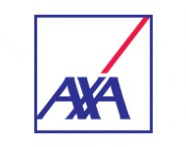Social media and reputational risk for food and beverage companies

Authored by AXA XL Industry Practices Leader Alastair Baker
Social media is playing an increasingly important part of our everyday lives. For food and beverage companies this represents a huge opportunity, but it does not come without risks. Alastair Baker, Industry Practices Leader at AXA XL, discusses how food and beverage companies must seek to manage the reputational risks involved with social media, and the role that insurance coverage can play.
The average adult Brit spends more than three-and-a-half hours online every day, with about half of that spent on social media platforms. Love it or loathe it, there’s no denying the influence that social media plays in the lives of millions of people. Any company that wants to stay relevant needs a social media presence – and to manage that presence proactively.
For food and beverage companies this represents a huge opportunity. Some of the biggest trends on social media have been food and drink-based – whether it be photos of healthy ‘Buddha bowls,” the perfect Cappuccino art, or artfully arranged avocado toast, beamed around the world by influencers.
While the most important element of a food and drink brand may be the taste – or health benefits – there is no denying the power of the visual. Food and drink are among the most photographed things on social media and food-related hashtags regularly rank among the most frequently used.
People look to social media for inspiration on what to eat and drink. Social media can enable food and beverage companies not only to have better interaction with existing customers and collect valuable insights about their likes, dislikes and habits, but also to engage with new markets and customers in previously untapped areas. The immediacy of social media, coupled with its reach, can help brands react swiftly and head off any reputational damage taking place.
Social media is no longer simply a tool. It is an extension of a brand’s image, reputation and persona. We have seen the influence that a celebrity recommendation or endorsement, whether that be official or unsolicited, can have on the popularity of a product or brand. Think for example of the rise in demand for foodstuffs like kale, spiralized vegetables or coconut water. These trends were fuelled in large part because so-called macro-influencers – those with more than 100,000 followers – talked about them on social media. And micro-influencers or unpaid content creators – those with between 5,000 and 25,000 followers - can also quickly establish food and drink trends by influencing their peer network.
There is a big opportunity here for brands to work with influencers to promote their products. But there are inherent risks too. Just as they would think carefully about choosing a partner who represents their values for a more traditional marketing or advertising campaign, brands need to be mindful of the influencers they choose to be associated with on social media.
Reputation
Reputation has ranked near the top of risk managers’ risk radars for many years. Almost 90% of business executives rank managing reputational risks as more important than any other strategic risk. And consumers too will vote with their feet if a brand falls short of their expectations; some 70% of consumers say they would avoid buying a product if they don’t like the company that makes it.
Risk experts understand the speed at which a brand’s reputation can be impacted by a negative event, and indeed how quickly it can recover or even be enhanced by the brand’s reaction.
In the food and beverage sector, in particular, there have been some high-profile reputational failures – and some notable successful recoveries too. In a sector that produces goods that people consume, the risks associated with health are uppermost in brands’ minds. If an incident occurs that affects the wellbeing of a consumer, brands need to be able to act swiftly to reassure other customers about the safety of their products.
Stakeholders are now placing an even greater emphasis than ever on the Environmental, Social and Governance (ESG) policies of the companies they buy from, trade with and invest in. This extends to supply chains too – consumers increasingly want to know that the ingredients they are being given have been ethically sourced The use of unnecessary plastic or the implication that elements of the supply chain rely upon child labour, for example, can become huge issues for brands that have not performed robust checks on their supply chains.
This makes the pressure on food and beverage companies to protect their reputation even more acute. While a social media presence can enable a brand to be proactive in dealing with reputational threats, and to show empathy or humour while so doing, it also can spread and perpetuate bad news – very fast.
Reputational crises can escalate quickly. Risk managers, therefore, need tools to help them not only to identify a potential crisis but to head it off at the pass.
Insurance coverage can play a role here. This isn’t simply a question of buying a policy and transferring the risk. Reputational risk is fluid, nuanced and requires ongoing expertise and support to be effectively managed. The support services that come as part of an insurance package are vital.
Our Reputational Crisis Event product can offer food and beverage clients pre-event planning with crisis response experts to identify where potential threats may exist and to put in place crisis management plans to deal with them should they occur.
The policy can offer media monitoring, flagging up not only adverse mentions of the brand itself but also potential issues within the supply chain, enabling brands to be on the front foot and address issues before they become a viral problem.
Should an incident occur, we can offer crisis management services to deal with the incident and ongoing support to help the brand recover.
Social media, for good or ill, will continue to play a role in the way brands are perceived. Consumers will log on to social media to learn more about the brands they buy from, to interact and build relationships with them. Food and beverage companies are well aware of the opportunities this can bring. As we look forward, we hope our clients will also make use of risk expertise to manage the potential downsides and make sure that the ‘likes’ outweigh the dislikes.
About AXA XL
AXA XL is the P&C and specialty risk division of AXA which provides property, casualty, professional and speciality products to industrial, commercial and professional firms, insurance companies and other enterprises, here in the UK and throughout the world. With underwriting teams based in the US, UK, EMEA and Asia Pacific regions, we can make decisions close to the markets you serve and work with you to tailor cover to your business needs.
We help businesses adapt and thrive amidst change. Rather than just paying covered claims when things go wrong, we go beyond protection into prevention so your business can go beyond the unexpected.

